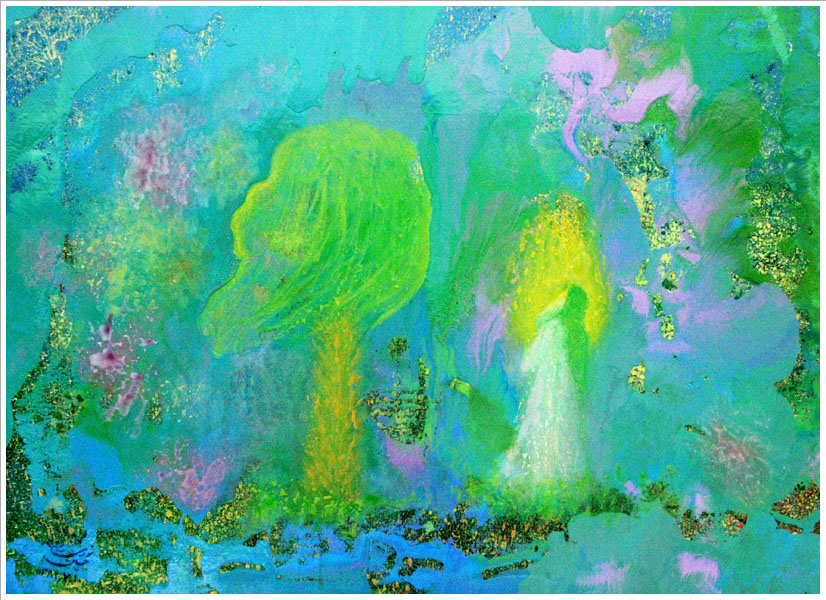FWP:
SETS == KIH
Ghalib seems to enjoy needling Khizr, just as he needles Farhad. The Islamic folk-traditional story of how Khizr undertook to guide Alexander to the Water of Life has many variants. The majority of them (though not all) involve some kind of treachery on Khizr's part. But they all agree on the outcome: that Khizr drank the Water of Life, while Alexander did not. A reference to this story also appears in {215,9}. It's on the basis of this story that Khizr can be considered to have become a 'thief' in order to procure the Water of Life. For more on Khizr, see {68,1}.
As the commentators point out, another consequence of Khizr's new status (after drinking the Water of Life) is that he becomes unknowable, or at least unrecognizable. Story tradition knows what he looks like-- he is a venerable old man dressed in green, and acts as a guide to lost travelers-- but the travelers whom he guides are not able to recognize him as himself. In this connection see {159,6}, which also turns on issues of recognition.
There's another lovely multivalence in the various meanings of ḳhalq . The speaker claims to be on personal, well-acquainted terms with God's 'creatures'-- or else, of course with 'creation' or even 'creating' (see the definition above). The 'creative' activity of the poet is both God-like and this-worldly (that is, accepting of finiteness). It is thus superior both to the triviality and derivativeness of Khizr's act of theft, and to the desperate and unworthy lust for eternal life that motivated it.
The colloquial vuh at the beginning of the first verse is an emphatic construction-- the speaker claims to be the really, the truly, the importantly, living one, the one who lives 'in such a way'. The expression works wonderfully here in Urdu, though it's hard to translate consistently.
'Khizr, the Green One' by Hussein Nuri, 2003:

Nazm:
That is, what good is such an eternal life, when you wander around in concealment like a thief? (265)
== Nazm page 265